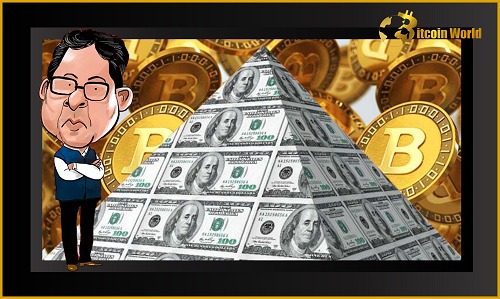The RBI Deputy Governor, in one of the most forceful utterances, referred to cryptocurrencies as Ponzi schemes and demanded that they be outlawed entirely. The government of India took the first move toward regulating cryptocurrencies by imposing a cryptocurrency tax. However, it appears that there is more to come, especially when considering the words made by the country’s RBI Deputy Governor in relation to crypto assets.
T Rabi Shankar, who became the RBI’s Deputy Governor in May, has been a vocal opponent of cryptocurrencies. The governor of the Reserve Bank of India has called for a complete ban on cryptocurrency.
On February 14, Sankar made the keynote lecture at the Indian Banks’ Association’s (IBA) Annual Banking Technology Conference & Awards, saying,
“Banning cryptocurrency is perhaps the most advisable choice open to India.”
“We have examined arguments by those advocating cryptos should be regulated”
“and found that none of them stand up to basic scrutiny.”
Sankar described crypto as a system created to circumvent government controls and modified to avoid regulated financial systems, particularly the Know-Your-Customer and AML/CFT regimes (anti-money laundering and counter-terrorism financing). As a result, he advised using extreme caution when dealing with cryptocurrency.
Cryptocurrency, according to the RBI Deputy Governor, can never fall into the definition of a currency because it has no inherent value and no underlying cash flows.
Sankar says, “Cryptocurrencies can and, if allowed, most likely will wreck the currency system,”
“the monetary authority, the banking system, and in general the government’s ability to control the economy.”
“So it would serve us well if understanding of cryptos goes beyond the hype”
“and gets rooted in reason, pragmatism.”
The RBI Governor, Shaktikanta Das, had previously warned investors that trading in highly volatile assets carries significant risks. Then, and that cryptocurrencies have no underlying values. So, Das compared Private Cryptocurrency to the Dutch tulip bubble or ‘tulip mania,’
That’s, seeing it as a major threat to macroeconomic and financial stability.
Between November 1636 and February 1637, there was a Tulip mania. That’s, during which the price of Tulips increased by more than 20 times. Tulip prices dropped by over 99 percent as the bubble burst.
Related Posts – Ferrari joins the NFT universe through a collaboration with a Swiss…
Disclaimer: The information provided is not trading advice, Bitcoinworld.co.in holds no liability for any investments made based on the information provided on this page. We strongly recommend independent research and/or consultation with a qualified professional before making any investment decisions.

